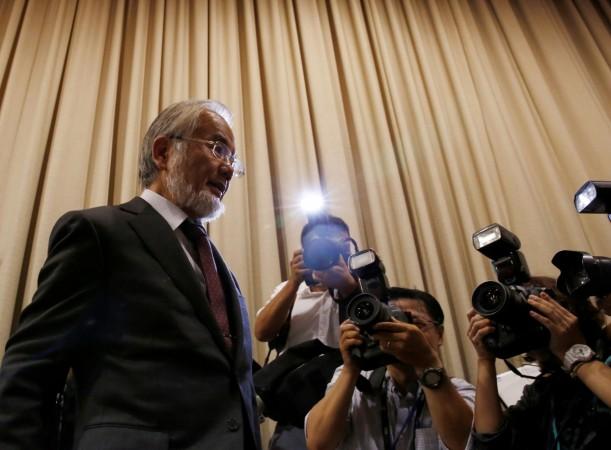
Japanese biologist and professor Yoshinori Ohsumi has been awarded the Nobel Prize in Physiology or Medicine. His research and subsequent discoveries in autophagy, explaining cell mechanism and how it degrades and recycles, have been lauded by the Nobel committee members. Ohsumi's work will aid in looking at neurological and other diseases differently.
"All I can say is, it's such an honor. I'd like to tell young people that not all can be successful in science, but it's important to rise to the challenge," Ohsumi told reporters at the Tokyo Institute of Technology. Announced on Monday in Stockholm, the award comes with an eight million Swedish kronor ($930,000) cheque that will help the biologist in his work in the coming years. The Nobel Prize isn't the only feather in Ohsumi's cap, he has been honoured with the Wiley Prize in Biomedical Sciences 2016, Keio Medical Science Prize 2015, International Prize for Biology 2015, Gairdner Foundation International Award 2015, Kyoto Price for Basic Science 2012, Asahi Prize 2009, 2006 Japan Academy Priza and 2005 Fujihara Award.
Juleen Zierath, who chaired the committee that selected Ohsumi, has appreciated his significant contribution to medicine. "What he showed was that it wasn't a waste dump. It was a recycling plant. This was a really sophisticated machinery that recycled damaged or long-lived proteins," she said.

















